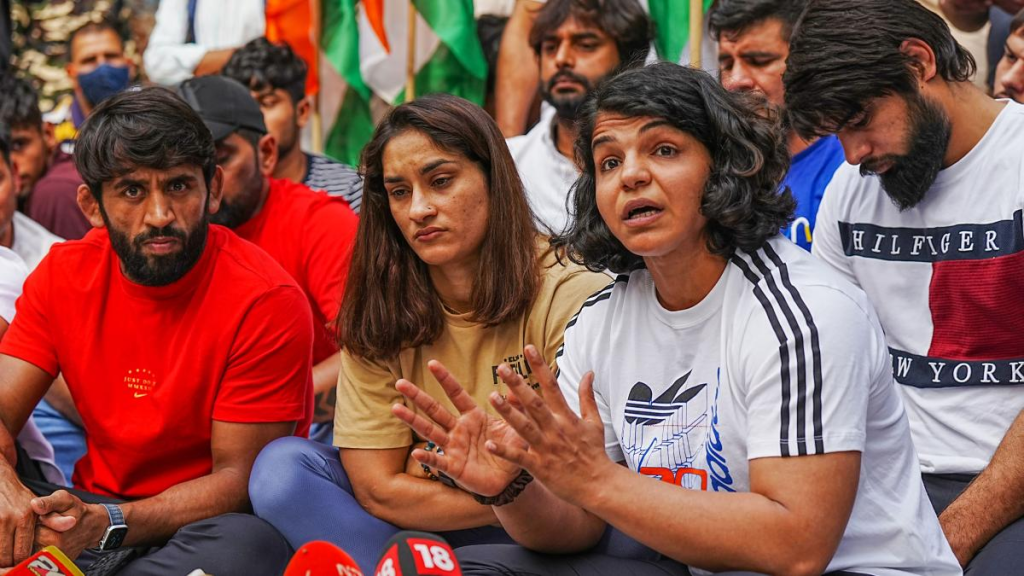Insights into Sexual Harassment Among Sports Players: Observations by an Agility Psychologist
Sexual harassment is a pervasive issue that affects individuals across genders, nationalities, and professions. Speaking out against sexual harassment is a deeply personal decision influenced by various factors, including cultural norms, upbringing, and socio-economic backgrounds. As a mental coach and trainer for agility, my close interactions with sports players have provided valuable insights into this issue. While the following list of top 10 reasons is not exhaustive, it offers indicative perceptions that shed light on why individuals may choose to remain silent.

Fear of retaliation: Players who have experienced sexual harassment often fear negative consequences for speaking out. These may include professional repercussions, damage to their reputation, or even expulsion or exclusion within their own teams. The fear of such consequences can be a powerful deterrent.
Stigma and victim-blaming: In countries like India, where societal validation carries significant weight, the stigmas and attitudes surrounding sexual harassment often lead to these incidents being pushed under the carpet. The fear of being blamed or judged for the incident, along with the accompanying feelings of shame and isolation, creates a strong incentive to remain silent.
Lack of support system: Limited access to resources and support networks, as well as a lack of knowledge about their rights, can contribute to the silence surrounding sexual harassment. The absence of readily available avenues to address the issue exacerbates the problem.
Cultural and social factors: Cultural pressures to maintain family honor, fear of tarnishing community reputation, and societal taboos around openly discussing such matters contribute to the silence surrounding sexual harassment, particularly in certain regions of India.
Power dynamics and influence: Similar to other industries, the sports industry is not immune to power dynamics. Victims may fear the influence or authority wielded by the offender, such as coaches, administrators, or influential figures who may have the ability to suppress or downplay reported cases.
Lack of awareness and knowledge: A significant knowledge gap exists within the sports community regarding what constitutes sexual harassment and its various forms. This lack of awareness leads to a reduced number of complaints being filed.
Limited legal protection and redressal mechanisms: Perceptions of an ineffective legal system or inadequate redressal mechanisms can discourage individuals from reporting incidents. The belief that reporting an incident will not lead to justice acts as a major deterrent.
Concerns about privacy and confidentiality: Victims often worry about the privacy and confidentiality of their personal information becoming public. These concerns can dissuade them from speaking out, as they fear potential repercussions and loss of control over their personal narrative.
Previous negative experiences and lack of trust: If players have witnessed a lack of action or inadequate response to previous reports of harassment, they are less likely to come forward. A lack of trust in the system or those responsible for addressing the issue can contribute to the prevailing silence.
Financial pressure: Many sports players choose their profession with the intention of providing for their families. Reporting instances of sexual harassment may jeopardize their careers and financial stability, creating an additional burden and incentive to remain silent.
Recommendations to Address Sexual Harassment:
To address these underlying issues and foster a culture that encourages open dialogue and empowers victims, I suggest implementing the following recommendations:
Education and awareness: Promote education and awareness programs that provide comprehensive information about sexual harassment, consent, and reporting mechanisms. Empower players with the knowledge to recognize and respond to such incidents.
Strong policies and reporting mechanisms: Implement robust policies and reporting mechanisms that clearly outline procedures for reporting and investigating sexual harassment allegations. Ensure confidentiality, impartiality, and swift action against offenders.
Support system and victim-centric approaches: Establish a supportive network, including trained counselors and advocates, to assist victims throughout the reporting and recovery process. Provide comprehensive support services to ensure their well-being and facilitate their empowerment.
Accountability and consequences: Hold perpetrators accountable for their actions through a fair and just disciplinary process. Ensure that appropriate consequences are enforced, including legal action when necessary, to deter future instances of sexual harassment.
Culture change and empowerment: Promote a culture of respect, equality, and inclusivity within the sports community. Empower players, coaches, administrators, and other stakeholders to actively participate in efforts to prevent sexual harassment. Encourage open dialogue, challenge harmful stereotypes, and promote gender equality.
Sexual harassment affects all individuals. To combat it, we need education to raise awareness, robust policies and reporting mechanisms for accountability, a fair disciplinary process, and a culture of respect and empowerment. Together, we can create a safer and more inclusive society.

Author Dr. Anjana, a renowned Breast cancer coach and educator with 30 years of experience, is a TEDx speaker, recipient of Dr. APJ Abdul Kalam national award, and was crowned Mrs. India International 2023 in Dubai.






